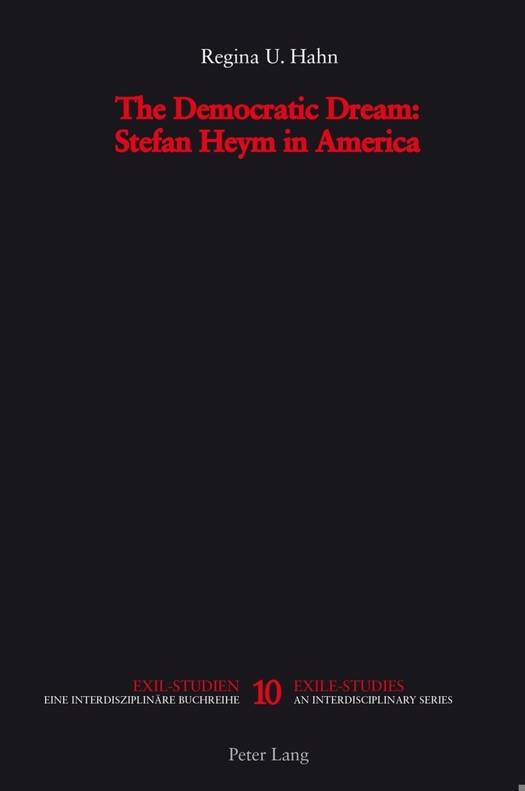
Door een staking bij bpost kan je online bestelling op dit moment iets langer onderweg zijn dan voorzien. Dringend iets nodig? Onze winkels ontvangen jou met open armen!
- Afhalen na 1 uur in een winkel met voorraad
- Gratis thuislevering in België vanaf € 30
- Ruim aanbod met 7 miljoen producten
Door een staking bij bpost kan je online bestelling op dit moment iets langer onderweg zijn dan voorzien. Dringend iets nodig? Onze winkels ontvangen jou met open armen!
- Afhalen na 1 uur in een winkel met voorraad
- Gratis thuislevering in België vanaf € 30
- Ruim aanbod met 7 miljoen producten
Zoeken
€ 63,95
+ 127 punten
Omschrijving
As the young editor of the New York based Deutsches Volksecho, Stefan Heym had to reconcile his responsibility as a journalist with his personal animosity towards the Nazi State and the disillusionment felt by exiles during the Great Depression. The result of this reconciliation, which drew upon his experience as a writer in pre World War II Germany and the democratic ideals of his newly adopted country, was a philosophy of democracy, citizenship and public debate that guided Heym's literary and political activities through the rest of his life.
Identifying this philosophy as a precursor to Habermas' theory of the public sphere, The Democratic Dream traces the development of Heym's beliefs through his writings at the Deutsches Volksecho and its further evolution through Heym's early American novels: Hostages, The Crusaders and Goldsborough.
Identifying this philosophy as a precursor to Habermas' theory of the public sphere, The Democratic Dream traces the development of Heym's beliefs through his writings at the Deutsches Volksecho and its further evolution through Heym's early American novels: Hostages, The Crusaders and Goldsborough.
Specificaties
Betrokkenen
- Auteur(s):
- Uitgeverij:
Inhoud
- Aantal bladzijden:
- 152
- Taal:
- Engels
- Reeks:
- Reeksnummer:
- nr. 10
Eigenschappen
- Productcode (EAN):
- 9783906768533
- Verschijningsdatum:
- 12/03/2003
- Uitvoering:
- Paperback
- Formaat:
- Trade paperback (VS)
- Afmetingen:
- 150 mm x 220 mm
- Gewicht:
- 239 g

Alleen bij Standaard Boekhandel
+ 127 punten op je klantenkaart van Standaard Boekhandel
Beoordelingen
We publiceren alleen reviews die voldoen aan de voorwaarden voor reviews. Bekijk onze voorwaarden voor reviews.











